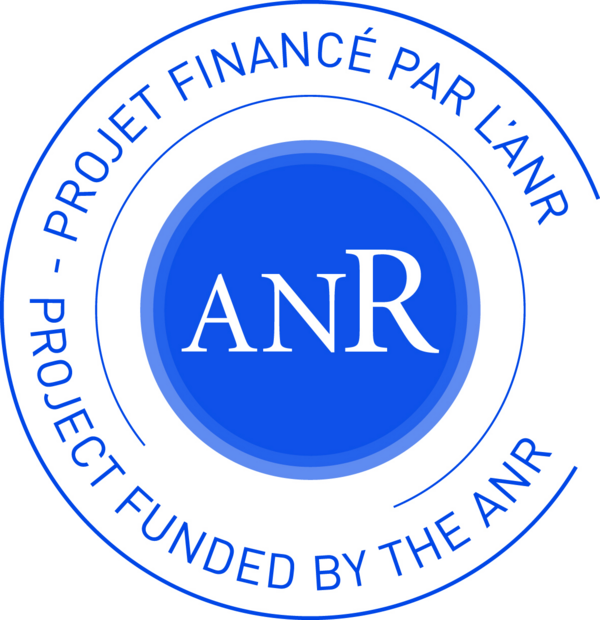Partners
STL (Savoirs, Textes, Langage), UMR CNRS 8163, Université de Lille : a multidisciplinary research laboratory (linguistics, philology, philosophy and history of science). The strength of the linguistich research is consolidated thanks to the collaboration between theoretical linguists and NLP researchers. For several years, STL members have been involved in projects dedicated to the biomedical field, including works on readability and acquisition.
STL is assisted by the USR CNRS 3185 MESHS (Maison Européenne des Sciences de l'Homme et de la Société) in managing and promoting results and knowledge.
The Computer Sciences Laboratory for Mechanics and Engineering Sciences (LIMSI): a CNRS laboratory (UPR 3251) with 250 members (120 of which are permanent). The ILES team is well-know in the NLP field. Within this group, different topics are addressed, among which information extraction, question answering, corpus linguistics, error analysis and readability. LIMSI members were involved in several projets (such as the Quæro program or ANR projects) and NLP competitions.
Laboratoire de Pédagogie de la Santé (EA3412 LEPS), Université Paris 13. Since 1977, LEPS members address research questions related to health education and practice, systemic problems of chronic diseases, role and relations between medical staff and patients, modern medical practice. LEPS researchers are especially involved in health education, the education continuum concerned with primary, secondary and tertiary prevention : education for health, first aid, and therapeutic education.
Haemophilia covers several genetic pathologies, severe and rare, that affect over 6,000 persons in France. If other very close pathologies (such as advanced forms of Willebrand disease or various coagulation disorders) are also taken into account, more ahtn 15,000 persons are affected in France.
Founded in 1955, the Association Française des Hémophiles (AFH) provides information, help and protection to persons suffering from haemophilia, Willebrand disease and rare coagulation disorders. The association obtained the official approval from the Ministère de la Santé in 1968 and is allowed to represent patients since 2006. It represents patients and their families at legal health institutions and authorities, national or regional. In order to stay close to its members, AFH has created regional committees all over the French territory, metropolitan or overseas.
The association actively promotes the improvement of patients' knowledge, as well as research on treatments and medical care of rare coagulation disorders. The priority is focused on the reliability of treatments. AFH works on four main goals:
- developing therapeutic education of patients,
- supporting regions and their committees,
- taking part in international actions,
- creating foundations for research activities within the association.
Several steps have been taken to increase the visibility and importance of AFH:
- AFH is member of the World Federation of Hemophilia and of the European Haemophilia Consortium;
- AFH participates in several trans-association networks, such as CISS (Collectif interassociatif sur la santé);
- AFH is an active member of organisms related to public health and medical research : member of the steering board of antihaemophilic drugs in the Agence Nationale de Sécurité du Médicament et des produits de santé (ANSM), member of the Institut de Veille Sanitaire (InVS), member of the FranceCoag network and administrator of the Établissement Français du Sang (EFS);
- AFH is a member of the CRMH's (Centre de Référence de l'hémophilie et autres Maladies Hémorragiques) steering board, the CRMW's (Centre national de Référence de la Maladie de Willebrand) steering board and the ONIAM's (Office National d'Indemnisation des Accidents Médicaux) orientation board.
The association has a scientific board that meets once a year at a national level and that gathers health professionals, patients and their families. AFH publishes a journal, which created the link with its members and provides associative, medical, social and legal information of haemophilia and Willebrand disease. The association is composed of employees and active volunteers, with 23 regional boards that work closely with the CTH (Centre de Traitement de l'Hémophilie).
Synapse Développement is a software house. For 20 years, it has been the leader in the area of text correction with its product Cordial (a software or online web application). Synapse Développement also maintains Cordial Dico, a French reference dictionary (definitions, synonyms, difficulties...). Synapse Développement provides solutions for stylistic and semantic analysis. The company designs software for individuals (over 30,000 customers) and professionals (Microsoft, Amazon, Le Parisien, AFP, Pages Jaunes, Reverso, etc.). One of its objectives in this project is to adapt and exploit these various resources to create a prototype for text analysis and simplification. Synapse's R&D team is composed of linguists, computer scientists and NLP experts.





